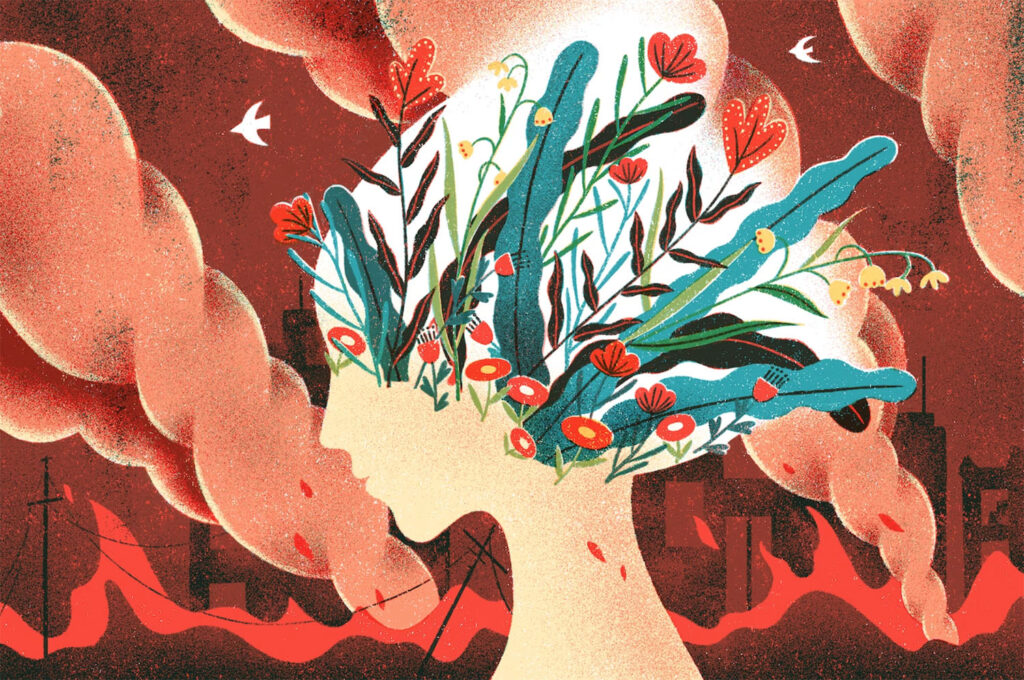“What if climate change meant not doom — but abundance?” That’s the premise of Rebecca Solnit’s powerful essay about reimagining the opportunities and joys we may find as we address climate change. Solnit is a writer, historian, author of more than 20 books and co-editor of the just-released anthology “Not Too Late: Changing the Climate Story From Despair to Possibility.” We want you to fully experience her transformative perspectives by sharing a few of her key points:
“What if we imagined “wealth” consisting not of the money we stuff into banks or the fossil-fuel-derived goods we pile up, but of joy, beauty, friendship, community, closeness to flourishing nature, to good food produced without abuse of labor? What if we were to think of wealth as security in our environments and societies, and as confidence in a viable future?
“Much of the reluctance to do what climate change requires comes from the assumption that it means trading abundance for austerity, and trading all our stuff and conveniences for less stuff, less convenience. But what if it meant giving up things [we’d be happy to be] rid of, from deadly emissions to nagging feelings of doom and complicity in destruction? What if the austerity is how we live now — and the abundance could be what is to come?
“Look closely, and you can see that by measures other than goods and money, we are impoverished…This is the world we live in with fossil fuel — the burning of which makes us poorer in many ways. We know that the fossil fuel industry corrodes our politics…And we know that as fossil fuel fills the upper atmosphere with carbon dioxide that destabilizes temperature and weather, it increases despair and anxiety.
“All of this has particularly affected the young, who are justified in their fury and grief. But in truth, we’re dealing with a broader sense of helplessness and even guilt — the impact on the psyche of witnessing or feeling complicit in something wrong.
“This is moral injury, and many of us suffer from it. Or we try to avoid seeing and thinking about it, and adopt a numbing, willful obliviousness.
“Such numbing breeds inaction, when this crisis demands specific action: a swift transition toward renewables, improved designs for the built environment, better care for the natural world in all the ways we interact with it.
“The good news is, the knowledge that we are not separate from nature but dependent on it is already far more present than it was a few decades ago. Everywhere, I see people rethinking how they work and live, turning this knowledge into reality.
“To respond to the climate crisis — a disaster on a more immense scale than anything our species has faced — we can and must summon what people facing disasters have: a sense of meaning, of deep connection and generosity, of being truly alive in the face of uncertainty. Of joy.
“This is the kind of abundance we need to meet the climate crisis, to make many, or even most, lives better. It is the opposite of moral injury; it is moral beauty. A thing we needn’t acquire, because we already have it in us.”

